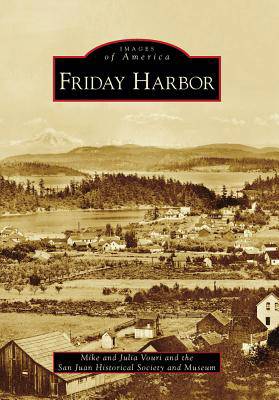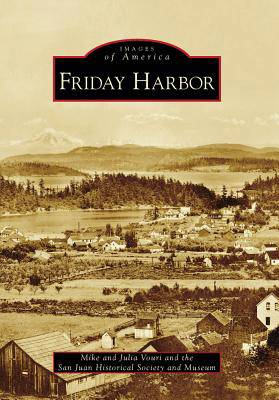
- Afhalen na 1 uur in een winkel met voorraad
- Gratis thuislevering in België vanaf € 30
- Ruim aanbod met 7 miljoen producten
- Afhalen na 1 uur in een winkel met voorraad
- Gratis thuislevering in België vanaf € 30
- Ruim aanbod met 7 miljoen producten
Zoeken
€ 33,95
+ 67 punten
Uitvoering
Omschrijving
When Friday Harbor, Washington, was incorporated in 1909, some wanted the town's name changed. In a misunderstanding, the British had named it in 1858 for a shepherd named Friday, who thought they were making introductions, not asking the name of the sheltered bay where he minded sheep. But the name stuck. As with many of the young state's small port towns, timber, salmon fishing, and farming fueled Friday Harbor's early economy. However, by midcentury, the lumber mill was gone, the introduction of irrigation in Central Washington swamped fresh produce markets, and the fish and pea canneries were shut down. Life slowed and some left, but in being passed by--until tourism caught on in the late 1970s--the town (and island) developed a unique sense of community that survives to this day.
Specificaties
Betrokkenen
- Auteur(s):
- Uitgeverij:
Inhoud
- Aantal bladzijden:
- 128
- Taal:
- Engels
- Reeks:
Eigenschappen
- Productcode (EAN):
- 9780738558691
- Verschijningsdatum:
- 1/02/2009
- Uitvoering:
- Paperback
- Formaat:
- Trade paperback (VS)
- Afmetingen:
- 165 mm x 231 mm
- Gewicht:
- 385 g

Alleen bij Standaard Boekhandel
+ 67 punten op je klantenkaart van Standaard Boekhandel
Beoordelingen
We publiceren alleen reviews die voldoen aan de voorwaarden voor reviews. Bekijk onze voorwaarden voor reviews.











